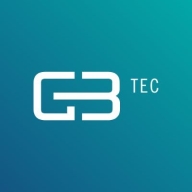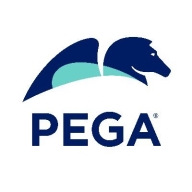

Pega Platform and BIC Platform are products competing in process automation and management. Pega Platform seems to have the upper hand in offering extensive features and configuration flexibility, which suits complex enterprise needs, while BIC Platform presents advantages in user-friendly process modeling.
Features: Pega Platform includes specialized features such as AI capabilities, robust process automation tools, and service orchestration, making it well-suited for scaling complex operations. BIC Platform offers user-friendly process modeling, efficient workflow management, and straightforward process mining, which is beneficial for organizations that prioritize seamless integration of processes.
Room for Improvement: Pega Platform can improve in simplifying its configuration for users without technical expertise, enhancing documentation clarity, and optimizing cost-effectiveness for smaller enterprises. BIC Platform could benefit from extended AI functionalities, enhanced scalability to support larger operations effectively, and broadened integration capabilities with other enterprise tools.
Ease of Deployment and Customer Service: Deploying Pega Platform can be complex and requires technical expertise, although it provides comprehensive support. In contrast, BIC Platform offers a simpler deployment process, with a responsive support team that ensures customer queries are addressed promptly, boosting customer satisfaction in these areas.
Pricing and ROI: Pega Platform involves higher initial setup costs; however, it delivers substantial long-term ROI for complex needs through its adaptability and scalability. BIC Platform presents a more budget-friendly setup and consistency in ROI, appealing particularly to small and midsize enterprises seeking effective solutions without significant upfront investment.
| Product | Market Share (%) |
|---|---|
| Pega Platform | 5.2% |
| BIC Platform | 1.4% |
| Other | 93.4% |

| Company Size | Count |
|---|---|
| Small Business | 9 |
| Midsize Enterprise | 15 |
| Large Enterprise | 68 |
BIC Platform delivers all-encompassing business process management. The software covers the complete lifecycle of BPM and supports strategy, design, implementation, execution and controlling of business processes.
BIC Platform has a modular setup which allows individual adjustments. Typical deployment scenarios of BIC Platform are SAP introduction, governance, risk or compliance management, quality management or the structure of process management systems.
Thanks to its intuitive design, users quickly start with process modeling and manage the full process cycle up to the optimization. Comprehensive features of the software are document management, governance, review and release workflows.
Available BIC Platform modules are Design, Governance, Portal, Monitor, Workflow and GRC. The software can be operated either as a Public Cloud, Private Cloud or On Premises. Offline modelling is possible with the web-based option.
https://www.gbtec.com/bic-plat...
Pega Platform facilitates business process management, case management, and workflow automation for industries like banking, insurance, and healthcare. It supports digital transformation and customer service enhancements with its low-code capabilities and seamless integrations.
Pega Platform enables users to create efficient systems for case management, financial operations, and digital transformations. It provides tools for client onboarding, quoting, claims processing, customer experience improvements, and content management. Pega's low-code approach allows for the automation of complex processes, making it suitable for enterprises looking for adaptability and rapid deployment. While it offers strong real-time analytics and decision automation, users acknowledge challenges in user interface, integration, and performance aspects. High costs and a learning curve need attention, and enhancements in AI features and cloud services are desired.
What are the key features of Pega Platform?In banking, Pega Platform automates loan processing, accelerates customer onboarding, and manages compliance. Insurance companies benefit from streamlined claims processing and policy management. Healthcare sectors use the platform for patient engagement and care coordination, enabling organizations to adapt quickly to changing industry requirements.
We monitor all Business Process Management (BPM) reviews to prevent fraudulent reviews and keep review quality high. We do not post reviews by company employees or direct competitors. We validate each review for authenticity via cross-reference with LinkedIn, and personal follow-up with the reviewer when necessary.